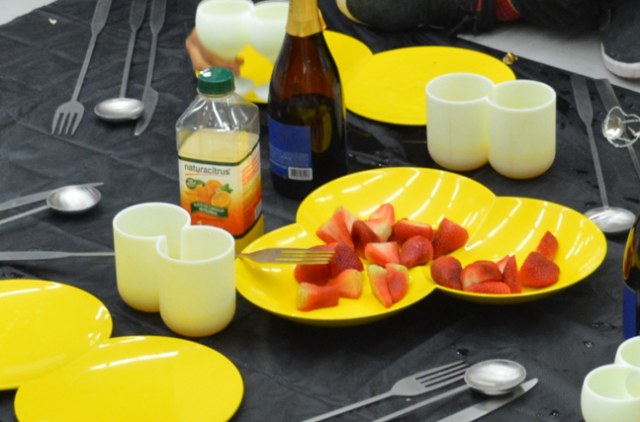We started with two images. One, of children in a three-legged race, running together, screaming in delight with their legs tied together. Clumsy, and fun, the success of any team in this game depends on arriving at some amount of coordination and cooperation. The other, a picture painted by a folk tale: the allegory of long spoons. Some say it has religious origins, and it has certainly circulated in various religious and folk traditions. In any case, it is the image we like of people feeding each other with utensils whose length demands codependency. The third ingredient is constituted out of old ideas of collective self-management. In Sharing Trainers we remade a table setting, a picnic, such that a number of its key elements now require cooperation and codependence. We multiplied forms of direct dependency across the party, in order to foster kinship and delight, kinship in delight, and delight in kinship.
Our dinner-party comes packed in 3 medium-sized suitcases corresponding to our nomadic lives and to the realities of the biennale. Each of the suitcases contains material that will enable “the table” to be set and shared with various conditions of co-dependence, fostering kinship and delight, kinship in delight, and delight in kinship. The dinner party ends with a game based on the tenants of (Yugoslavian) self-management: Balls for All.
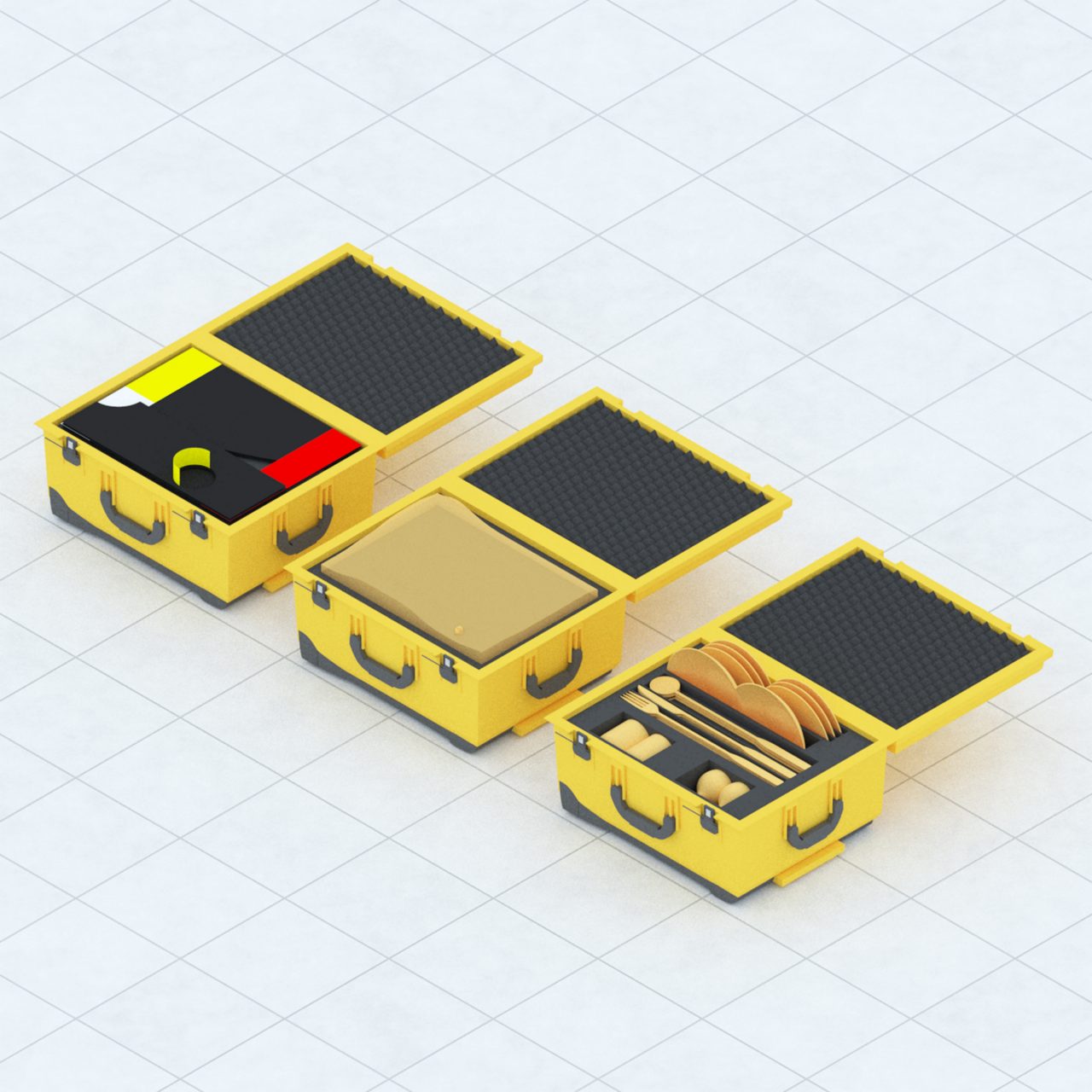


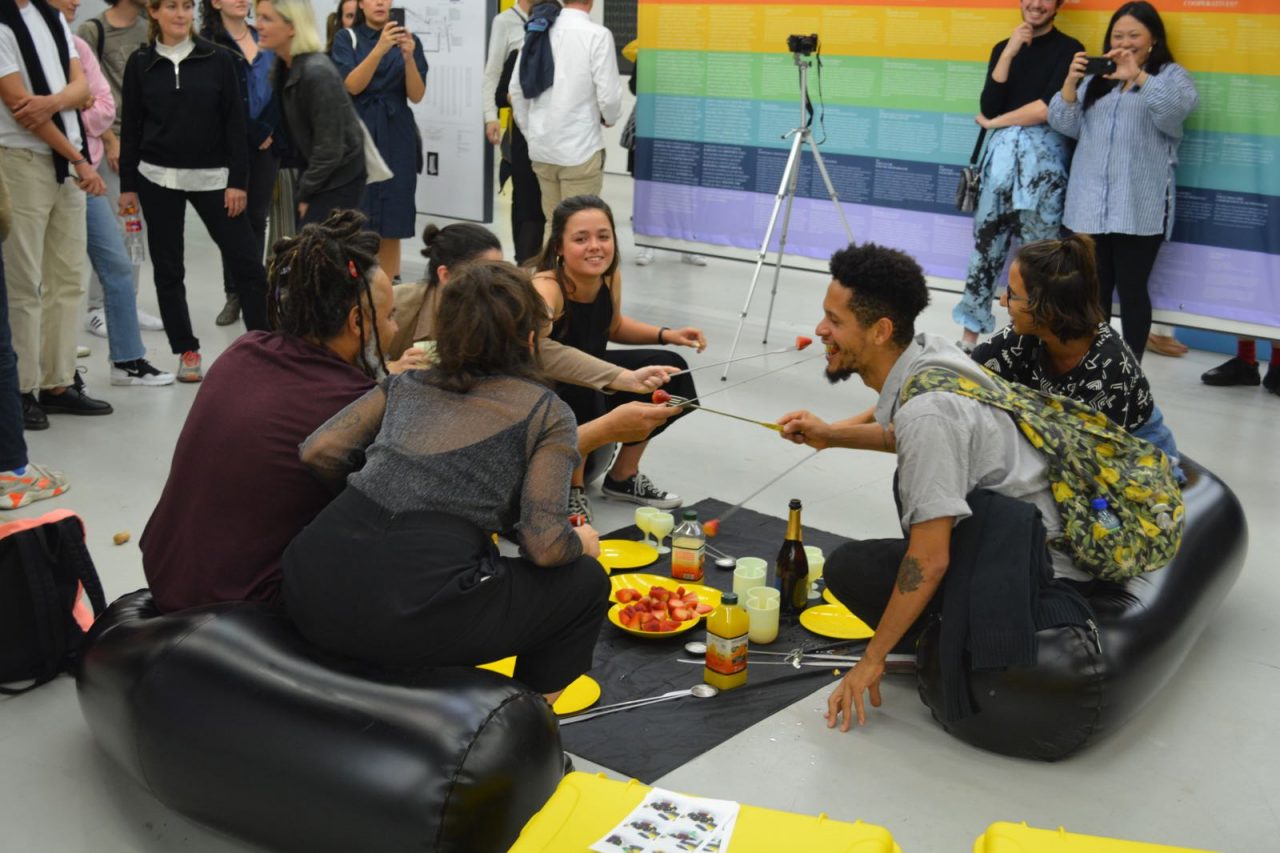
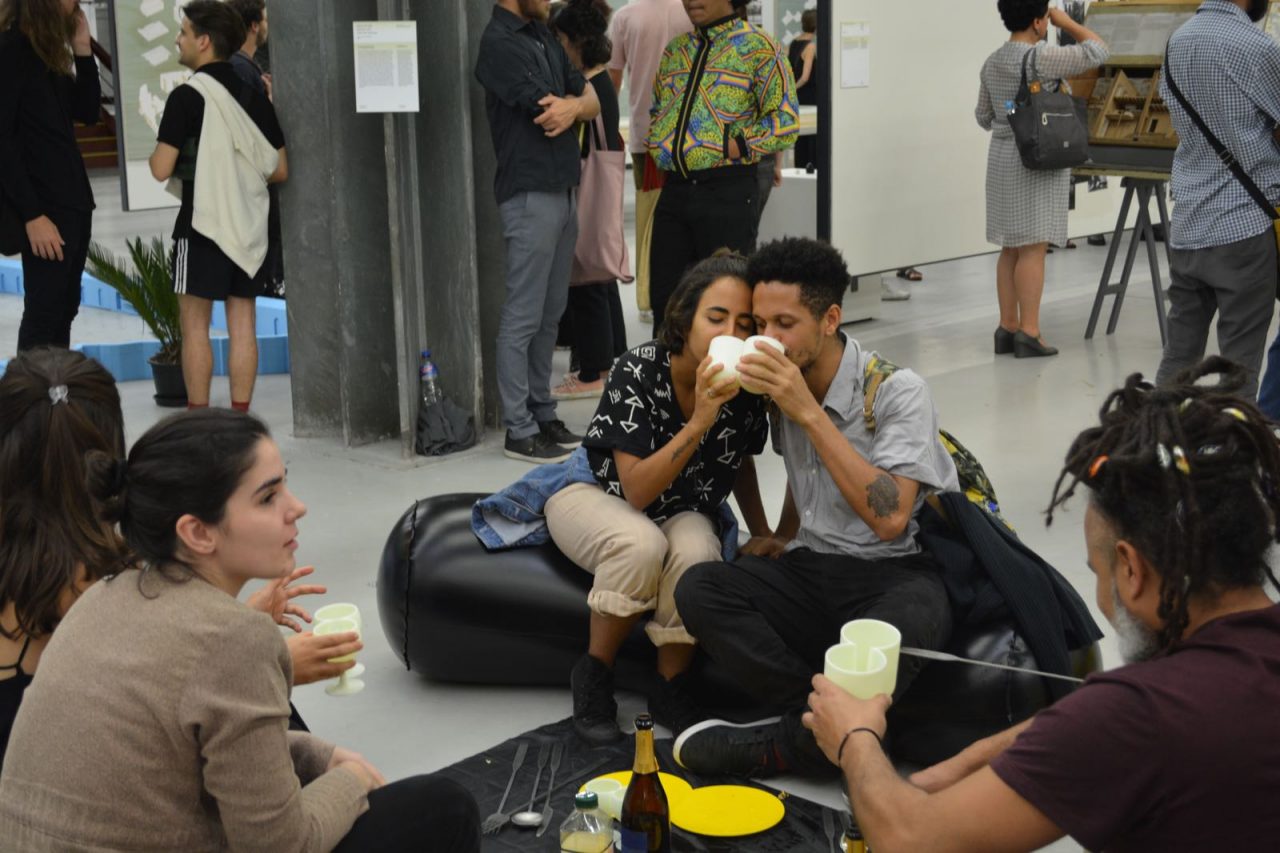
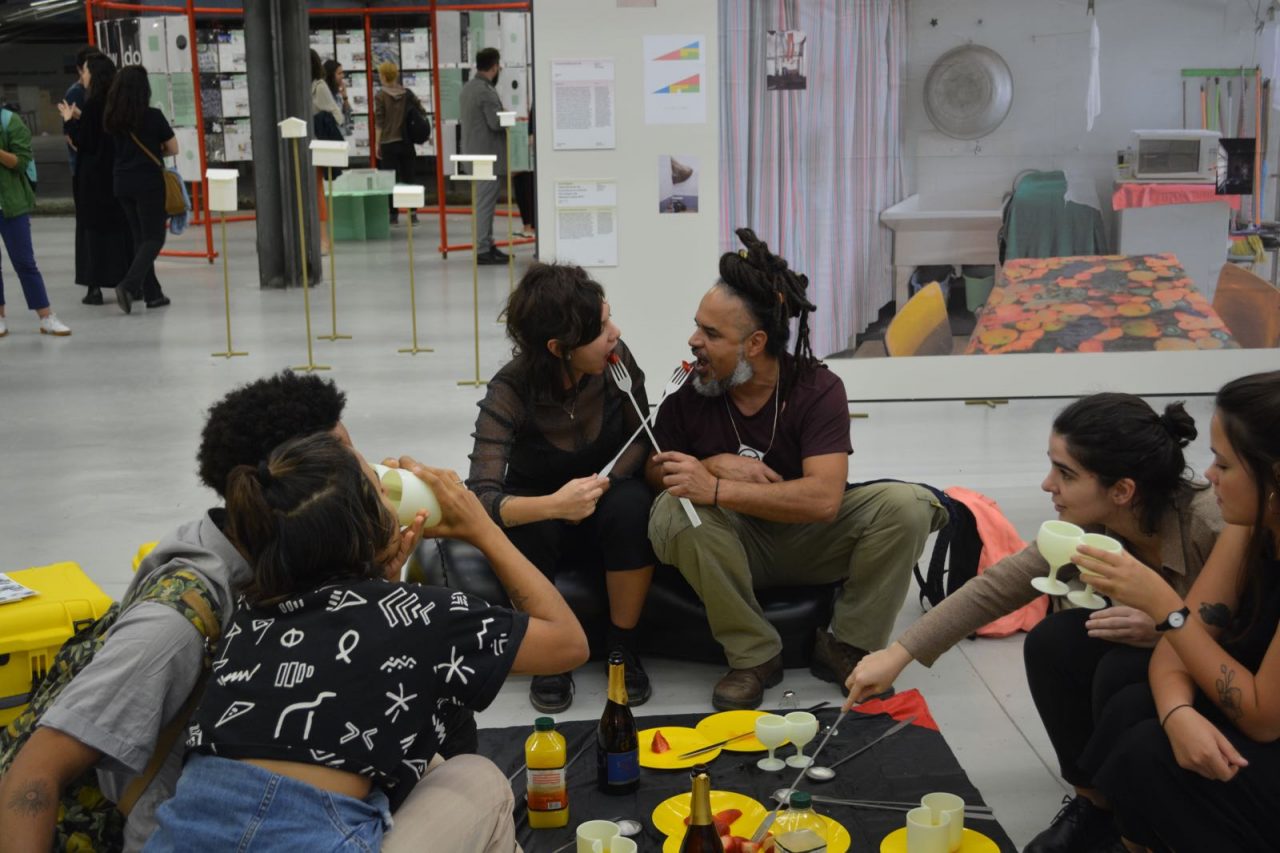


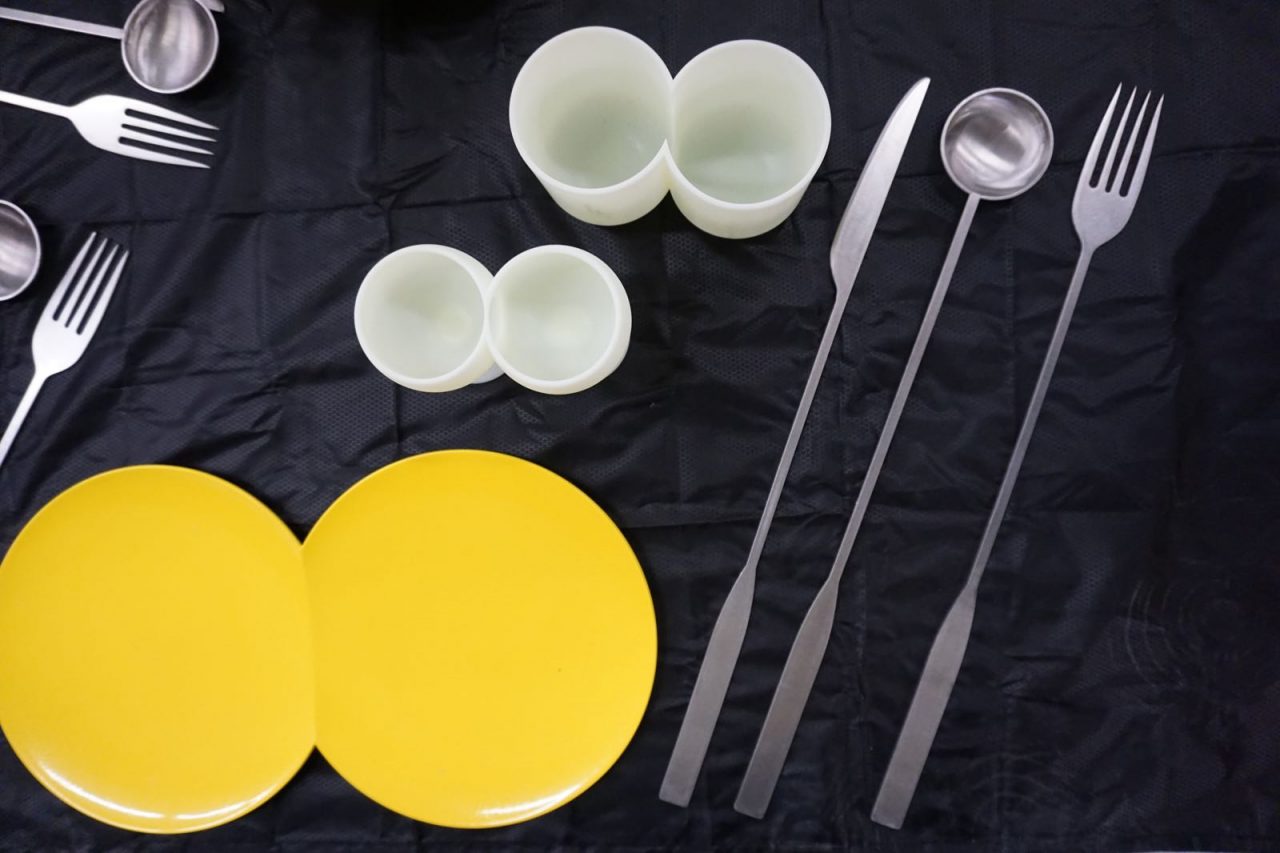

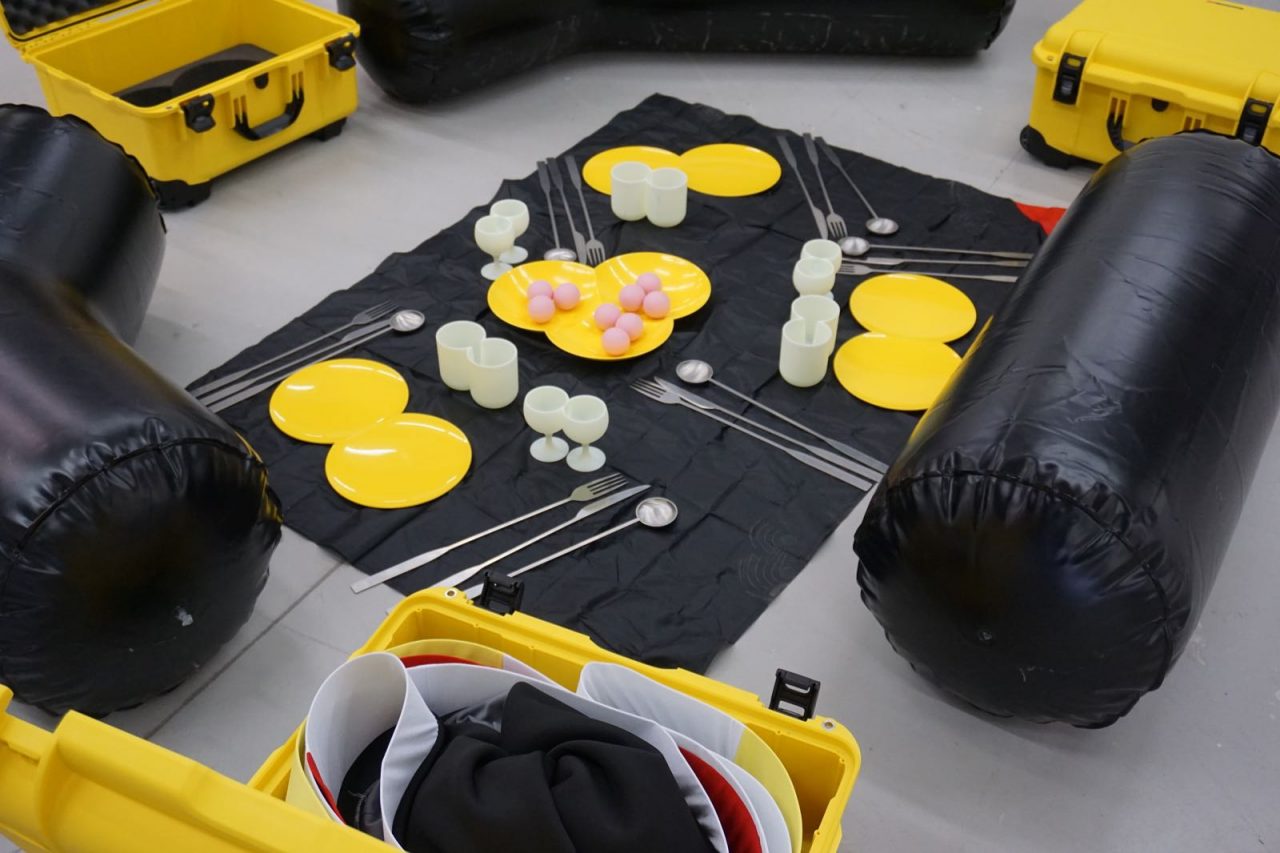

team
Ana Miljački
Trevor Herman Hilker
Gideon Schwartzman
Stratton Coffman
Sarah Wagner
Sydney Cinalli
Catherine Lie
this project was supported by the CAST Mellon Faculty fellowship at MIT
